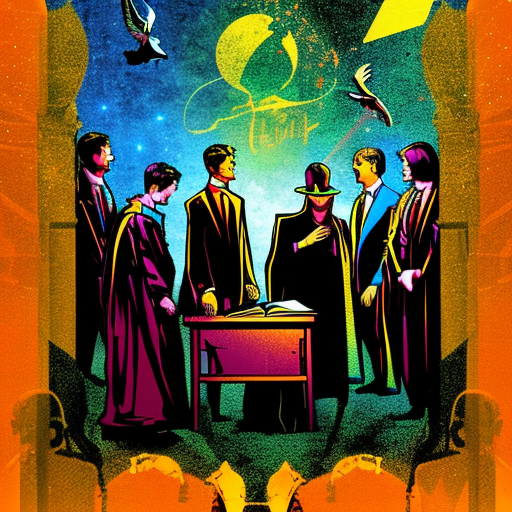Summary:
In the book “Dead Poets Society” by N.H. Kleinbaum, a group of students at Welton Academy in Vermont are inspired by their English teacher, Mr. Keating, to seize the day and pursue their passions. Through his unorthodox teaching methods, Mr. Keating encourages the boys to think for themselves, challenge societal norms, and embrace the power of poetry. As they navigate the pressures of conformity and the expectations of their families, the students learn valuable lessons about individuality, friendship, and the pursuit of happiness.
Carpe Diem: Seizing the Day
One of the central themes in “Dead Poets Society” is the concept of carpe diem, or seizing the day. Mr. Keating introduces this idea to his students through the works of poets like Walt Whitman and Robert Frost, encouraging them to live in the present and make the most of their lives. He urges them to break free from the constraints of society and follow their passions, reminding them that life is short and should not be wasted. This theme resonates with the students, inspiring them to take risks and pursue their dreams, even in the face of opposition.
Challenging Authority and Conformity
Another important theme in the book is the students’ rebellion against authority and the pressure to conform. At Welton Academy, the boys are expected to adhere to strict rules and traditions, preparing them for success in the future. However, Mr. Keating encourages them to question these norms and think critically about their own desires and beliefs. This leads to conflicts with their parents, teachers, and even their fellow students, as they struggle to find their own voices in a world that values conformity. The boys learn that true fulfillment comes from being true to oneself, even if it means going against the expectations of others.
The Power of Poetry and Expression
Throughout the book, poetry serves as a powerful tool for self-expression and personal growth. Mr. Keating teaches the boys to appreciate the beauty and power of words, using poetry to inspire them and help them understand their own emotions. Through the exploration of different poets and their works, the students learn to find their own voices and express their thoughts and feelings in a meaningful way. Poetry becomes a source of solace, inspiration, and connection for the boys, allowing them to explore their own identities and navigate the complexities of adolescence.
- Individuality and self-expression are essential for personal growth and fulfillment.
- Challenging societal norms and expectations can lead to personal and intellectual liberation.
- Embracing the present moment and pursuing one’s passions are key to a fulfilling life.
“We don’t read and write poetry because it’s cute. We read and write poetry because we are members of the human race. And the human race is filled with passion. And medicine, law, business, engineering, these are noble pursuits and necessary to sustain life. But poetry, beauty, romance, love, these are what we stay alive for.”
– Mr. Keating
In conclusion, “Dead Poets Society” is a thought-provoking and inspiring novel that explores themes of individuality, rebellion, and the power of poetry. Through the guidance of their teacher, Mr. Keating, the students at Welton Academy learn to challenge societal norms, seize the day, and embrace their own unique voices. The book serves as a reminder that life is too short to be lived according to the expectations of others, and that true happiness comes from following one’s passions and staying true to oneself.












